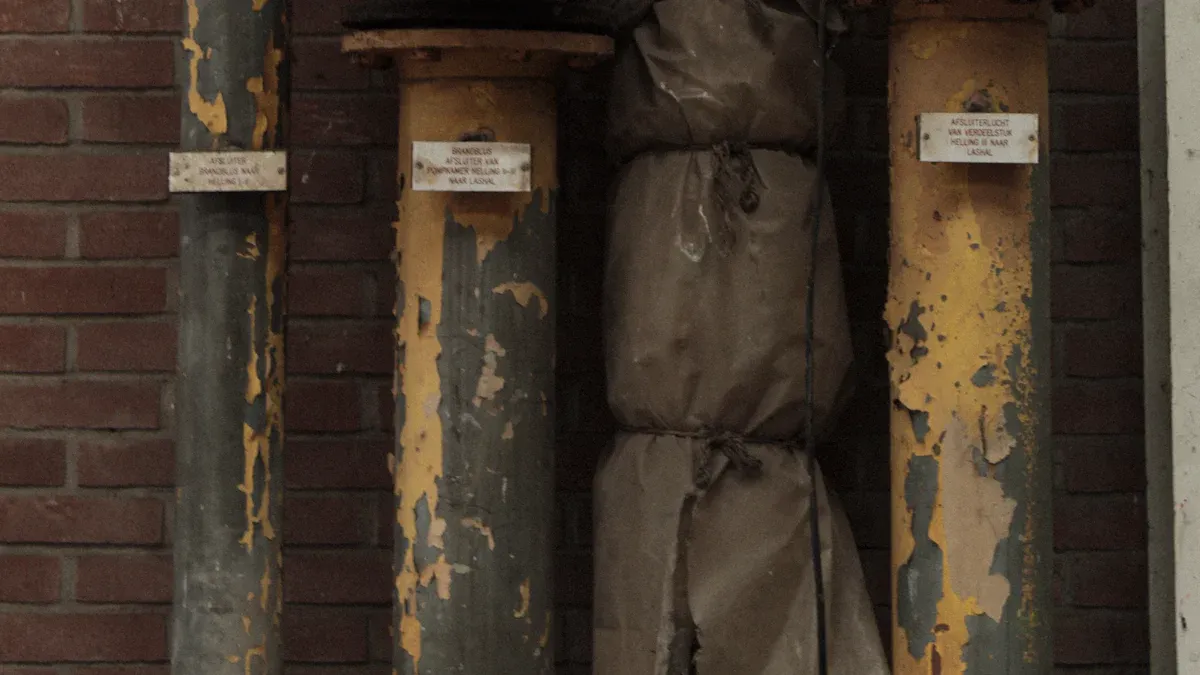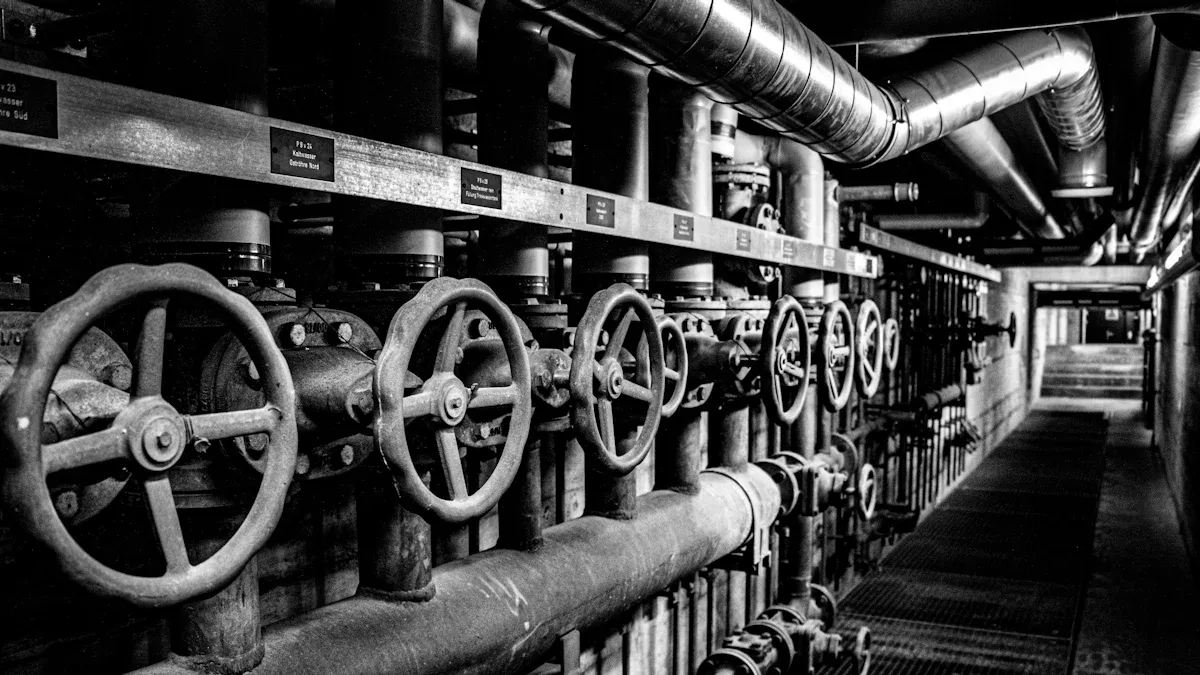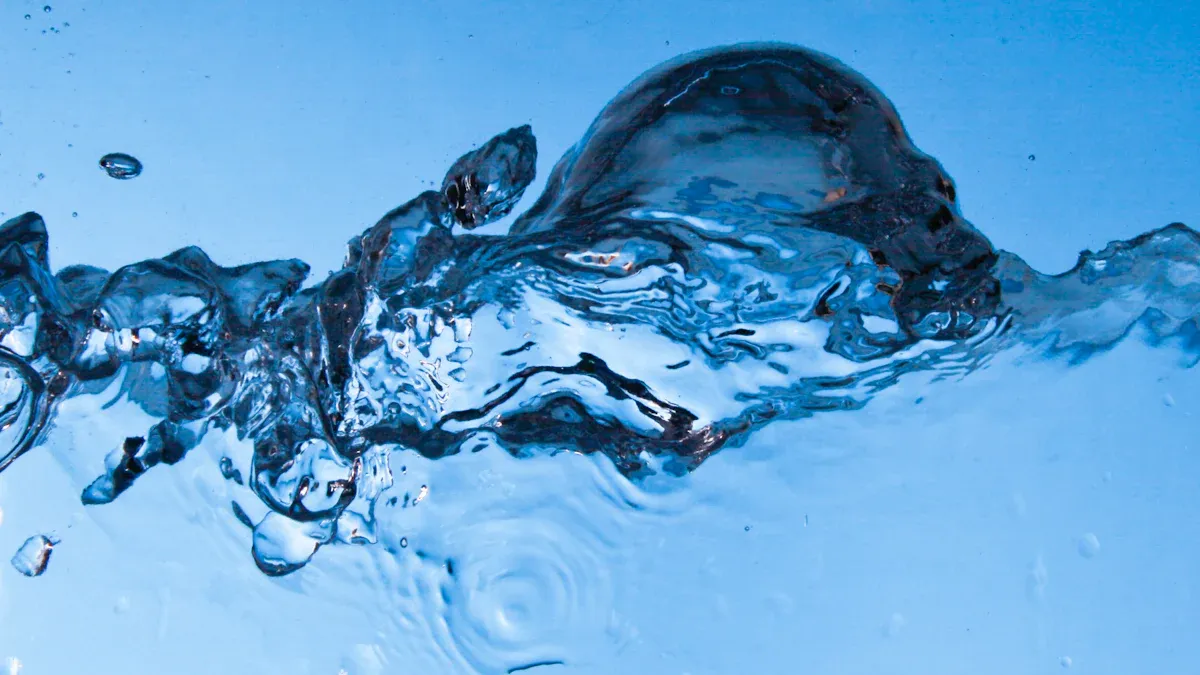

Views: 0 Author: Site Editor Publish Time: 2025-10-26 Origin: Site









You use iron valves every day to get safe water. These valves are very strong and dependable. Cast iron gate valves help control city water systems. Ductile iron gate valves can handle high pressure easily. Gate valves work by moving a gate up or down inside. This lets water flow or stops it when needed. Iron valves last longer than many other materials. They also help keep your water clean and safe.
Iron valves are strong and can last a very long time. They may work for 50 to 100 years. This means you do not need to fix them often.
Ductile iron valves can handle high pressure very well. This makes them great for big water systems.
Iron valves help keep drinking water safe for people. They stop leaks and keep out things that can make water dirty.
Iron valves save money over time. You do not have to replace or fix them a lot.
Picking iron valves is good for the environment. They can be recycled and help cut down on waste.

You want your water system to last a long time. Iron valves help make this possible. Ductile iron gate valves can handle strong water pressure and lots of water. These valves are good for city water systems because they do not break easily. They keep working even when things get tough.
Ductile iron gate valves can last 100 years or more. Their special linings make them even stronger.
Cast iron valves also last a long time, from 50 to 100 years. How long they last depends on the soil and water.
Iron valves are built strong, so they break less often and need less fixing.
Tip: Using iron valves means you do not have to fix them a lot. This saves money and keeps your water system working well.
Iron valves give your water system the strength it needs. Ductile iron gate valves can take high pressure and quick changes in water flow. This makes them great for big water systems. They seal well, so leaks and water loss are less likely.
Here is a table that shows how iron valves can fail and how to stop it:
Failure Mode | Description | Mitigation Strategy |
|---|---|---|
Corrosion | Chemicals or outside things can make valves weak. | Use materials that fight corrosion. |
Pressure Transients | Fast changes in water can crack or break valves. | Control pressure changes. |
Poor Installation | Mistakes when putting in valves can cause problems later. | Check valves often. |
Cast iron ball valves are also important for keeping systems working. You can take care of these valves by doing a few easy things:
Turn the valve once a month if you do not use it much.
Let out the pressure before you start fixing it.
Change the seats and seals if they are worn out.
Only use the right kind of grease on the seals.
Test the valve after fixing it to make sure it works.
Iron valves help your water system stay strong and work well. These valves control and stop water when needed. Picking the right valves and taking care of them keeps your water system safe and working right.
Note: Ductile iron pipes and valves work together to stop leaks and save water. They are strong and last a long time, so you do not have to replace them often.
You want your water system to work for many years. Corrosion is a big problem for metal parts in water systems. Iron valves are better at fighting rust and chemical damage than many other materials. Makers use special coatings and treatments to keep these valves safe from harsh places.
Zinc-based, thick epoxy coatings cover ductile iron and cast steel valves. This layer stops water and chemicals from touching the metal.
Thermo-diffusion coatings make a strong shield that sticks to the valve. This makes it harder for corrosion to start.
Fusion-bonded epoxy (FBE) forms a tough wall. It keeps the metal safe from water inside and soil outside, so the valve lasts longer.
Ductile iron valves have a special inside structure. Their round graphite shape and strong chemical stability help them fight weak acids, bases, and dissolved oxygen in city water. In places like sewage plants, you can use anti-corrosion paint for extra safety from strong chemicals.
Tip: Putting coatings like epoxy or enamel on iron valves is an easy way to help them last longer and work better.
Here is a table that shows common coatings and what they do:
Coating Type | Advantages | Disadvantages |
|---|---|---|
Epoxy Resin Powder | Sticks well, smooth finish, great at stopping rust, not expensive | N/A |
Nylon-Based Powders | Very tough, strong, and lasts a long time | Costs more |
Epoxy-Polyester Powder | Keeps rust away for a long time | N/A |
You might wonder how iron valves compare to others. Stainless steel valves are very good at fighting rust, even in hard places. Brass valves also work well, but they can have problems like dezincification. PVC valves do not rust and can handle many chemicals, but they cannot take high heat or pressure.
Iron valves do not fight rust as well as stainless steel, brass, or PVC.
Stainless steel is best where there are lots of chemicals or salt.
Brass works for many things but can fail in some water.
PVC is good for chemicals but not for hot water or high pressure.
Even though iron valves do not fight rust as well as some other materials, they are strong, cost less, and are easy to take care of. This makes them a smart choice for many water systems.

You want your drinking water to be safe every time you turn on the tap. Iron valves play a big part in keeping your water clean and free from harmful substances. When you use high-quality iron valves, you help stop dirt, bacteria, and chemicals from getting into your water supply.
Old, unlined iron pipes can build up rust inside. This rust can break off and make your water unsafe.
If valves get old or stop working, water can sit too long in the pipes. This can lower the amount of disinfectant in the water and let germs grow.
Broken or stuck valves can also let in outside dirt or bacteria, which can make people sick.
To make sure your water stays safe, many iron valves meet strict safety standards. These standards check that the valves do not add anything harmful to the water and that they work well for a long time.
Standard | Description |
|---|---|
WRAS | Makes sure valves do not change the taste, smell, or look of water. |
NSF/ANSI 61 | Checks that valves are safe for drinking water and meet health rules. |
Tip: Always look for valves with WRAS or NSF/ANSI 61 certification. These labels mean the valves are safe for your water system.
You want your water to taste fresh and stay healthy. Ductile cast iron pipe systems help keep the pH of your water balanced. This means your water does not become too acidic or too basic, which helps it taste better and keeps it safe to drink. Iron valves also help keep water moving, so it does not sit in the pipes for too long. When water moves, it stays fresher and less likely to grow germs.
Iron valves help stop leaks and keep out outside air and dirt.
They make sure water flows the right way, so old water does not mix with new water.
When you use iron valves and pipes together, you help keep your water clean, fresh, and safe for everyone.
You want to pick the best option for your water system. Iron valves help you save money in the long run. At first, iron valves can cost more than plastic or brass ones. But they last much longer and do not break as often. Iron valves do not need a lot of fixing because they are tough. You will not have to buy new parts or pay for repairs very often.
If you think about the cost over many years, iron valves are usually cheaper. You do not have to replace or fix them all the time. This makes your water system work better and helps you plan your spending.
Tip: When you pick iron valves, you pay once and get benefits for many years.
Here is a table to help you compare:
Valve Material | Upfront Cost | Maintenance Needs | Service Life | Total Cost Over Time |
|---|---|---|---|---|
Iron | Medium | Low | 50-100 years | Low |
Brass | High | Medium | 30-50 years | Medium |
Plastic (PVC) | Low | High | 10-20 years | High |
You want to help the earth and make good choices. Iron valves are good for the environment in many ways:
Cast iron can be melted and used again and again.
Makers use lots of old metal to make new iron valves. They use scrap iron and steel to build them.
Iron valves last a long time, so you do not throw them away often. This means less trash.
Metal valves, like iron, can be recycled many times. This saves resources and means less digging for new metal.
Making plastic valves uses oil and chemicals that can hurt nature. Iron valves do not have this problem.
Note: Picking iron valves helps cut down on waste and supports recycling.
When you use iron valves, you save money and help the planet at the same time.
You want water systems that are safe and last a long time. Iron valves are strong and do not rust easily. They also help keep water clean. In a big city project, engineers used a butterfly valve with a very wide opening. It could handle lots of pressure. This shows iron valves work well for hard jobs. In the future, more iron valves will be used because:
More places are building new water systems.
Renewable energy projects need strong valves.
Companies want designs that are good for the earth.
New rules say valves must not leak.
Smart technology makes valves safer and better.
Iron valves are still important for water systems now and in the future.
Iron valves last longer and handle higher pressure. You can use them in big water systems. Plastic valves break more easily and do not work well with hot water or strong pressure.
Iron valves stop leaks and block dirt from entering your water. You get cleaner water because these valves seal tightly and do not let germs in.
Yes, you can recycle iron valves many times. Factories melt old iron valves to make new ones. This process saves resources and helps the environment.
You should check iron valves once or twice a year. Look for leaks, rust, or damage. Regular checks help you find problems early and keep your water system safe.
